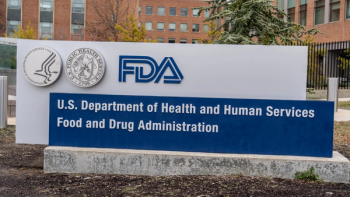
Insights from ISPOR 2017
A look at evidence and value in a time of social and policy change.
The International Society for Pharmacoeconomics & Outcomes Research (ISPOR) convened in Boston May 20-24, 2017 for its 22nd Annual International Meeting. ISPOR has become the world’s foremost professional association for all matters related to the economics of healthcare and boasts an international membership of approximately 20,000 individuals from a wide range of affiliations, including life sciences companies, contract research organizations (CROs), consultancies, database vendors, health IT start-ups and academia.
Approximately 4,000 attendees descended upon Beantown to participate in the ISPOR conference, the theme of which was “Evidence and Value in a Time of Social and Policy Change.” If that sounds like a nod to our current political environment, then the first plenary session did not disappoint. With the wide open yet provocative title, “Where is U.S. Health Policy Going?”, the panel discussion included four economists who have counseled health policymakers on both sides of the political spectrum. Despite this intended balance, the discussion didn’t take long to focus on the perils of Obamacare repeal, both from the standpoint of loss in health insurance for more than 20 million Americans (1) but also from the perspective of what a political hot potato the issue has become for Republicans and Democrats alike.
The day two plenary session was decidedly less political, focusing on social networks and population health. Social networks have existed since the beginning of human history, but of course in the era of social media, our ability to form networks has now surpassed the usual geographic bounds. There is a growing body of research devoted to how our networks impact our health, with intriguing theories, for example about how the obesity epidemic might be characterized as being driven by a “contagion” leading to spread of the problem within networks (if you have a first-degree connection who is obese then your likelihood of being obese is increased by 35%, according to the research presented by Nicholas Christakis, Co-Director, Yale Institute for Network Science). Similarly interesting insights apply to health interventions, in which social network analysis can show how introduction of an intervention can have variable population-level impacts depending upon its point of entry into the network of affected individuals.
The final day’s plenary posed the question, “When do we really need randomized controlled trials (RCT)?” This question is particularly relevant from the perspective of ISPOR’s membership, many of whom are purveyors of real-world data, and it is timely as well based on the prominence of real-world evidence in the 21st Century Cures Act. In contrast to RCT data, which benefits from randomization and tight experimental control, real-world data lacks these constructs and therefore is more likely to be subject to bias and confounding when used to compare medical treatments. In real-world practice, for example, it is not uncommon for use of a new medical intervention to be restricted to more severely ill patients-hence, in straight head-to-head comparisons with existing therapies patients who receive it might have poorer outcomes of care, even if the new product has superior efficacy.
Health econometricians and biostatisticians have made a great deal of progress in developing techniques to control bias and confounding, but this will always be the Achilles heel of real-world data. For this reason the discussion of how and when real-world data can be used in lieu of RCT data for regulatory decision making is warranted.
Here’s looking towards ISPOR 23rd Annual International meeting May 19-23, 2018 in Baltimore, Md.
References
(1)
https://www.nytimes.com/2017/03/13/us/politics/affordable-care-act-health-congressional-budget-office.html?_r=0
David Thompson, Ph.D., is senior vice president, real world evidence at inVentiv Health.
Newsletter
Lead with insight with the Pharmaceutical Executive newsletter, featuring strategic analysis, leadership trends, and market intelligence for biopharma decision-makers.



